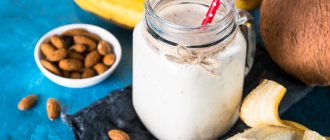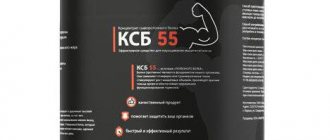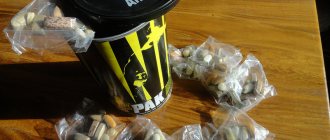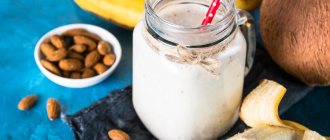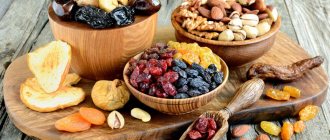How much meat is in the sausage you ate for breakfast? What is the burger patty made of? You may not even realize it, but soy has long and firmly entered your life. It is quite possible that the steak that the healthy gentleman at the next table is devouring with appetite is also made from soy. What is known about soy protein and what horror stories is it time to stop believing? Let's talk about everything in order.
Soy protein[edit | edit code]
Soy protein
Soy protein
- according to research, the worst type of protein to use in bodybuilding, both when gaining muscle mass and when burning fat. It has a very low cost and is widely used for feeding livestock. For economic reasons, it is actively advertised and also included in products and sports nutrition, so always read the composition carefully. Soy protein has low popularity and, according to most experts, should not be used for the following reasons (relevant for isolates and concentrates):
Boris Tsatsouline. Soy texture.
- Low biological value (74).
- Incomplete amino acid composition
- Low absorption rate.
- Potential estrogenic activity (absent in isolates).
- In a number of studies below, soy protein was found to be inferior to other types of protein.
Yuzhakov Anton Digestibility, digestibility and biological value of soybeans from 10:16
Biological value[edit | edit code]
There are many different types of protein available today. Efficiency is measured by such an indicator as biological value (BC). BC is the most accurate indicator of the biological and anabolic activity of a protein. The index of biological value of protein is calculated as the ratio of the amount of nitrogen remaining in the body to the amount of nitrogen obtained from a given protein, i.e. its digestibility is taken into account.
Biological value of different types of protein:
- Whey - 130
- Whole egg - 100
- Egg white – 88
- Casein - 77
- Soy
— 73
Benefit for health
Some research suggests that including soy protein in your diet may provide a variety of health benefits.
For example, soy products have a positive effect on heart health. In a review of 35 studies, soy consumption lowered levels of "bad" LDL cholesterol and increased levels of "good" HDL cholesterol ().
Another review found that replacing animal protein with 25 grams or more of soy protein resulted in reductions in total cholesterol, "bad" LDL cholesterol, and triglycerides ().
For cancer, the evidence appears mixed.
In many observational studies, a diet high in soy has been associated with a protective anticancer effect.
However, the scientists note that it remains unknown whether this refers to soy protein isolate powder or other plant protein derived from soybeans.
Some observational and case-controlled studies have linked soy consumption to a reduced risk of breast cancer (, ,).
Others have found no effect in preventing the risk of developing breast cancer. In one study, soy consumption was even linked to stimulating rapid cell production in the breasts of premenopausal women, possibly increasing the potential risk of developing breast cancer (, ).
Regarding the health effects of soy protein on men, some observational studies suggest that consuming soy products may reduce the risk of prostate cancer in older men (, ).
Although results from observational studies are encouraging, human clinical studies regarding the potential protective anticancer effect of soy are currently inconclusive.
Additionally, many studies have been conducted using soy products rather than soy protein powder.
However, soy protein can be a good source of plant protein for people who do not consume animal proteins, including vegetarians and vegans, allowing them to benefit from consuming this nutrient ().
Summary:
Soy products may have potential health benefits, such as lowering cholesterol and possibly reducing the risk of cancer, but more research is needed.
Soy protein in bodybuilding[edit | edit code]
In order not to be unfounded, we present the latest research data:
To gain weight:
Phillips SM and colleagues in 2009 compared the anabolic properties of milk (whey and casein) and soy protein. The analysis data clearly showed that milk protein stimulated muscle growth significantly more than soy protein.[1] A 2009 paper by Tang JE, Moore DR found that the stimulation of muscle growth in young adults was greater when consuming whey protein than soy protein.[2] Although a 2007 Douglas Kalman study found no differences in effectiveness.[3]
Conclusion: Whey supplements are better for muscle growth because they have a stronger evidence base.
To burn fat:
When studying the benefits of different types of protein during weight loss, data were obtained: the thermogenic effect is higher when consuming whey protein (14.4 ± 0.5%), followed by casein (12.0 ± 0.6%) and in last place soy protein (11.6 ± 0.5%). Whey peptides have the greatest ability to increase the rate of fat oxidation. Despite the fact that soy is digested at an average rate, it causes almost the same rise in insulin levels as whey, which is an additional negative fact for burning fat.[4]
Veldhorst MA in 2009 in his experiment came to the conclusion that whey protein is more effective in suppressing hunger compared to soy protein.[5]
So, it is clear that soy is not the preferred choice for fat loss. casein as a slow source of amino acids
, or complex additives.
Soy contains more protein than pork. What else is there?
Global hopes have been placed on soy: it is recognized as so nutritious that with the help of soy products they seriously intend to fight the famine that threatens the planet. Soybeans contain twice as much protein as pork, three times more than eggs, and 12 times more than milk. Also found in soybean:
- vitamins B and C;
- minerals (potassium and calcium, zinc and iron, phosphorus and magnesium);
- essential fatty acids omega-3 and omega-6;
- phytonutrients.
Description of the shortcomings[edit | edit code]
Amino acid composition[edit | edit code]
Proteins with a high BC are more effective in maintaining a positive nitrogen balance, immunity, stimulating IGF-1 (insulin-like growth factor), and reducing muscle tissue loss during dieting than proteins with a low BC. Thus, foods with a high BC have a more pronounced anti-catabolic effect (prevent muscle destruction) than those with a low BC. One of the reasons for the low BC of soy protein is the lack of the sulfur-containing acid methionine. Methionine
- an essential amino acid, that is, it is not synthesized in the human body.
Amino acids of this kind play a particularly important role in protein synthesis and the normal functioning of the immune system, as well as in the production of glutathione. Glutathione
is one of the most significant antioxidants in the body.
It protects cells and detoxifies a number of harmful compounds, such as hydrogen peroxide, carcinogens, reactive oxygen species, etc. In particular, glutathione is partially responsible for preventing the oxidation of low-density lipoproteins (bad cholesterol). More importantly, there are low levels of BCAA
, three essential amino acids in bodybuilding that promote muscle growth and protect muscles.
Poor absorption[edit | edit code]
Soy proteins have a slow absorption rate and contain components that interfere with the digestion and absorption of many different nutrients. The two most important antinutrients found in soy are lectins and protease inhibitors.
- Lectins
are elements in plants that lead to problems ranging from impaired absorption of important nutrients to damage to the gastrointestinal tract. - Proteases
are enzymes involved in protein digestion. Soy contains several protease inhibitors, which interfere with normal digestion and absorption of proteins in the gastrointestinal tract.
Estrogenic activity[edit | edit code]
Soy is rich in phytoestrogens (isoflavones), which act in the body as female sex hormones - estrogens. As every bodybuilder knows, changing the testosterone/estrogen ratio in favor of estrogen leads to female-type body fat deposition, suppressed libido, and other adverse effects that interfere with the achievement of the goals of strength athletes.
Sports supplements containing soy are usually well-rectified and contain a minimal amount of phytoestrogens. Studies have been conducted where estrogenic activity was not observed when soy isolates were consumed by men, but the degree of purification can vary greatly.
A 2007 Goodin study found that taking 56 grams of soy isolate daily caused a 4% drop in testosterone levels over 4 weeks in a test group of 12 healthy men. [6] (An error in the study summary states a 19% drop, which was incorrectly reported by the media.) However, a study conducted by Miami Research Associates refutes Goodin's study, demonstrating that soy protein had no significant effect on testosterone levels in healthy men. [7] As it turned out after checking the Goodin study, only one participant in the experiment experienced a drop in testosterone. The participant in question initially had a testosterone level that was 200% higher than the other subjects, and over the course of the experiment his testosterone level gradually decreased to the levels of the other participants. The Goodin study, in conclusion, does not conclude that the participant's drop in testosterone was caused by soy protein.
A 2010 meta-analysis of data found that soy did not negatively impact testosterone levels in men,[8] but this did not disprove its estrogenic activity. A 2011 scientific article reported male hypogonadism and erectile dysfunction associated with consumption of soy products.[9] It is also worth adding that the scientific article in question reviews the effects of soy products on only one man, which somewhat reduces the value of the study.
The benefits of soy protein[edit | edit code]
It should be immediately noted that only soy protein isolates
.
Manufacturers of high-quality soy protein isolates remove or significantly reduce the activity of antinutrients (antinutrients) during processing of raw materials. In addition, the addition of methionine to soybean isolates significantly increases their biological and nutritional value. However, the BC of a whole egg or quality whey protein is still higher. A number of studies indicate that soy protein isolate affects the production of thyroid hormones in humans. However, this may not be a big benefit for bodybuilders since the changes in the levels of these hormones are extremely minor. Soy protein has some antioxidant properties. CONCLUSION:
Thus, in any situation, regardless of gender, soy is definitely not the optimal choice.
May help you lose weight
Research shows that high-protein diets can lead to weight loss, even without restricting calorie or nutrient intake (, ,).
However, evidence is mixed regarding the relationship between soy protein and weight loss.
Some studies show that soy protein may increase weight loss as effectively as animal proteins.
In one study, 20 obese men ate both a high soy protein diet and a high meat protein diet ().
Appetite control and weight loss were similar in both groups. The researchers concluded that diets high in soy protein were as effective in weight loss as diets high in animal protein.
Another 12-week study showed similar results using soy protein powder. Participants received either a soy-based or non-soy-based meal replacement. By the end of the study, both resulted in an average weight loss of 7.8 kg (7.8 kg).
In fact, one study of people with diabetes and obesity found that meal replacement with soy protein shakes may be more effective than standard diets for weight loss ().
Those who replaced meals with soy protein lost an average of 2 kg more than those who followed a standard diet.
However, although some studies have observed effects on reducing excess body weight, a review of 40 studies assessing the effects of soy protein on weight, waist circumference and fat mass found no significant beneficial effects ().
Overall, the evidence for soy protein intake for weight loss is not as strong as the evidence for other proteins such as whey and casein (, ).
Summary:
Some research suggests that soy protein may be effective in losing weight, but the evidence is mixed and does not show it is more effective than other proteins.
Sources[edit | edit code]
- Phillips SM, Tang JE, Moore DR. The role of milk- and soy-based proteins in supporting muscle protein synthesis and muscle protein accretion in young and elderly persons. J Am Coll Nutr. 2009 Aug;28(4):343-54.
- Tang JE, Moore DR Ingestion of whey hydrolysate, casein, or soy protein isolate: effects on mixed muscle protein synthesis at rest and following resistance exercise in young men. J Appl Physiol. 2009 Sep;107(3):987-92. Epub 2009 Jul 9.
- Douglas Kalman, Samantha Feldman. Effect of protein source and resistance training on body composition and sex hormones. J Int Soc Sports Nutr. 2007; 4:4.
- Acheson KJ, Blondel-Lubrano A. Protein choices targeting thermogenesis and metabolism. Am J Clin Nutr. 2011 Mar;93(3):525-34. Epub 2011 Jan 12.
- Veldhorst MA, Nieuwenhuizen AG, Dose-dependent satiating effect of whey relative to casein or soy.Physiol Behav. 2009 Mar 23;96(4-5):675-82.
- Goodin, Susan et al. (2007). "Clinical and Biological Activity of Soy Protein Powder Supplementation in Healthy Male Volunteers." Cancer Epidemiology Biomarkers & Prevention 16(4):829–33. doi:10.1158/1055-9965.EPI-06-0882. PMID 17416779.
- Kalman D et al. (2007-07-23). "Effect of Protein Source and Resistance Training on Body Composition and Sex Hormones." J Int Soc Sports Nutrition 4(1): 4. doi:10.1186/1550-2783-4-4. PMC 1997115. PMID 17908338.
- Hamilton-Reeves JM, Vazquez G. Clinical studies show no effects of soy protein or isoflavones on reproductive hormones in men: results of a meta-analysis. Fertil Steril. 2010 Aug;94(3):997-1007. Epub 2009 Jun 12.
- Siepmann T, Roofeh J. Hypogonadism and erectile dysfunction associated with soy product consumption. Nutrition. 2011 Jul-Aug;27(7-8):859-62. Epub 2011 Feb 25.
Summarize
- Soy protein is a complete source of protein. It can help build muscle, but is not as good as whey protein.
- In general, soy is safe for most people and may provide health benefits, including weight loss.
- If you like the taste or prefer plant-based foods, you might want to try soy protein.
The article was prepared by experts for informational purposes only. It should not be used as a guide for treating medical conditions and is not a substitute for professional medical advice, diagnosis, or treatment. In case of illness or any symptoms, you should always consult a doctor and not self-medicate.
Tags: Protein, Soy
About the author: Larisa Kuts
Board-certified physician specializing in family medicine, geriatrics and integrative medicine. Clinical experience as a physician ranging from disease management to family practice and emergency care.
- Related Posts
- Vitamin B12: dosage. How much to take per day?
- How to get vitamin D: effective ways
- What is the correct omega-3 dosage for women and men?
« Previous entry
Reviews from real people
What do people think about soy protein?
Feedback on the forum
Feedback on the forum
Feedback on the forum
Feedback on the forum
In fact, there are a lot of reviews and mostly they are all positive.
